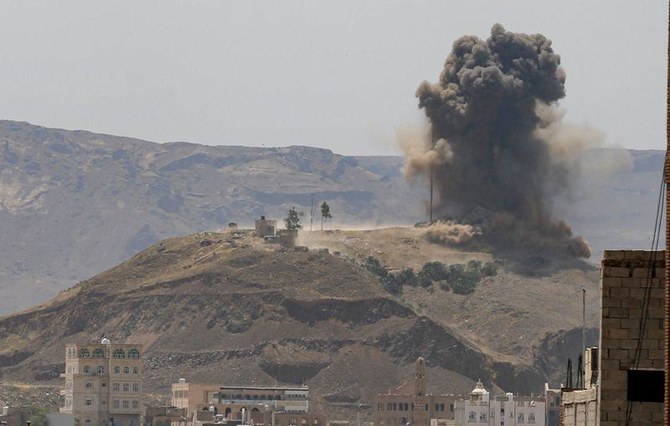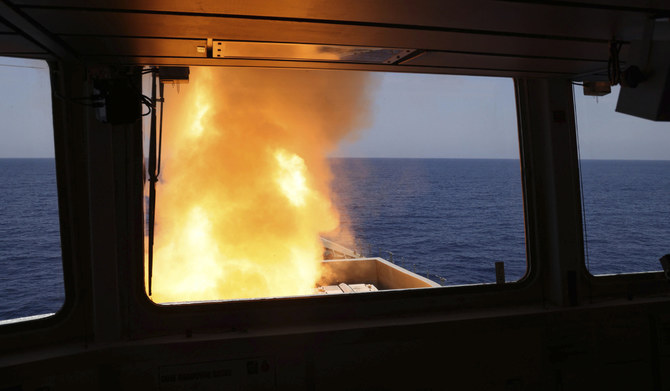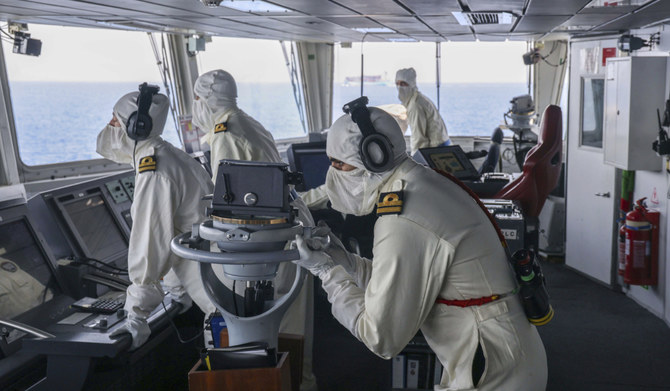NEW YORK CITY: Although a truce agreed between the Yemeni government and the Iran-backed Houthis expired more than 10 months ago, the people of Yemen continue to reap its benefits, including a decrease in the number of child deaths, and the ongoing flow of fuel shipped through Hodeidah’s port, the UN said on Monday.
It also allowed the first commercial flight in seven years carrying Hajj pilgrims from Sanaa to Saudi Arabia to take place, the organization added.
This period of relative calm has opened a window of opportunity for serious discussions between the warring parties with the aim of ending the conflict once and for all, said Hans Grundberg, the UN’s special envoy for Yemen. However, peace talks will require “a serious breakthrough” if the war is actually to end, he added.
The comments came as Grundberg briefed the Security Council on his latest efforts to mediate an agreement between Yemen’s legitimate government and the Houthis on the way forward. He expressed gratitude for the regional support for such discussions, especially from Saudi Arabia and Oman. He also thanked Jordan for hosting meetings between the two sides in the conflict to discuss the release of more detainees, building on large-scale prisoner-exchange agreements in March.
Despite the general decline in violence in Yemen, Grundberg warned that the situation on the ground remains “fragile and challenging” and “the front lines are not silent.” From Dhale, Taiz and Hodeidah to Marib, Shabwa and Ibb, he said, sparks of violence continue to “increase fears and tensions.” He called on all involved in the conflict to “stop provocative military actions and rhetoric that raise the specter of further escalation.”
In addition, economic battles continue to take a toll on civilians, Grundberg warned.
“The struggle to control revenue-generating ports, trade routes, the banking sector, currency and natural-resource wealth has become inseparable from the political and military conflict,” he said.
Freedom of movement remains another “huge” challenge.
“Conflict-related road closures force thousands of Yemenis every day to take unsafe routes and have raised the cost of transporting goods by upward of 100 per cent,” said Grundberg. “Landmines, unexploded ordnance and climate change-related extreme weather events compound the impact of freedom-of-movement restrictions on civilians.
“For women and girls, the restrictions on freedom of movement have become even more pronounced over the course of the conflict. The requirement that women and girls travel accompanied by a male relative has expanded significantly over the past year, especially in Ansar Allah-controlled areas,” he added, using the official name for the Houthi militia.
“This requirement is also often imposed by armed groups at checkpoints in different parts of the country. Such restrictions prevent women from accessing their basic needs, from engaging in economic opportunities, and from participating in politics and peace-making efforts.”
The Swedish diplomat said “we cannot afford to seek a seasonal peace” as he called on all parties to take “further, bold steps” toward a more sustainable and just peace, including agreement on a “sustainable, nationwide ceasefire, (and to reverse) antagonistic economic policies which deepen the divide between them and further fragment the country, (and to) enhance economic links among Yemenis, including by opening roads” and increasing the number of flights operating out of Sanaa International Airport.
Joyce Msuya, the UN’s deputy emergency relief coordinator, told council members that “Yemen is poised for change” but as the political process progresses “we must remain vigilant and active on the humanitarian front.”
She warned that the need for assistance “will remain high for the foreseeable future” among the 22 million people in Yemen who require aid to survive. This at a time when the international humanitarian response remains at only 29 per cent of the required funding level, resulting in drastic cuts to the provision of safe shelter and food aid for millions, including refugees and internally displaced people, she added.
“Migrants, asylum seekers and refugees are among the most vulnerable of these, and their numbers are growing,” Msuya said, adding that more than 77,000 migrants have arrived in Yemen so far this year, with the number expected to double by the end of the year.
“While not the largest vulnerable group in Yemen in terms of numbers, (migrants) face severe protection risks,” she said.
“Migrants usually arrive in Yemen en route to better opportunities elsewhere. But once in Yemen, they often face exploitation and violence, including extortion, abduction and physical abuse. (Asylum) seekers and refugees use the same routes, arrive in mixed flows with migrants and face similar threats. And women and girls are particularly at risk.”
Msuya called on all those involved in the conflict to “fulfill their obligations to meet the essential needs — such as health, food, water and shelter — of all civilians under their control.”






















